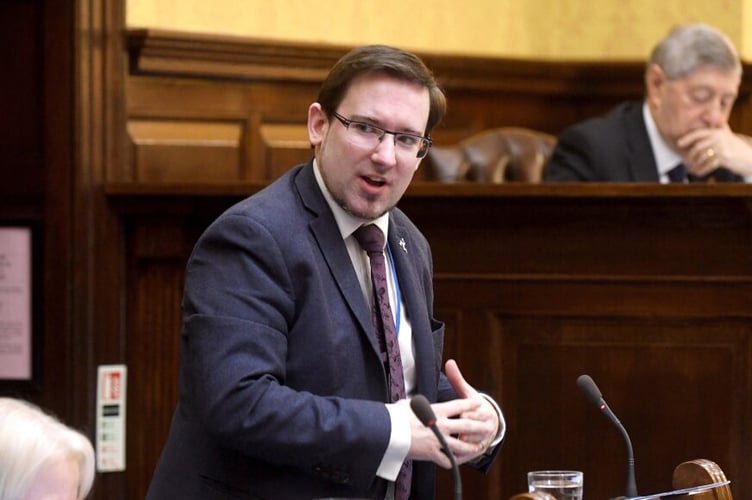More people could end up paying for their prescriptions after it was revealed the exemptions list could be reduced.
In a written Tynwald question to Health and Social Care Minister Lawrie Hooper by Douglas North MHK John Wannenburgh, to ask The Minister for Health and Social Care what consideration his department has given to free prescriptions for cancer patients.
But rather than reveal plans to provide exemptions for them, Mr Hooper says the department was actually looking at reducing the number of people being handed free prescriptions.
Mr Hooper said: ‘The Department takes a strategic approach to making and reviewing policy, which looks at clinical and social needs, affordability and financial stability.
‘In line with this approach the Department is reviewing the current policy on prescription fees and exemptions.’
Mr Hooper went on to say prescription charges only contribute a small amount to the overall cost of issuing drugs for various illnesses and conditions and described this as ‘unsustainable’.

He explained: ‘The island is seeing a continuing and unsustainable rise in the cost of drugs dispensed in the community, and we periodically receive enquiries about introducing further exemptions to prescription charges.
‘At the moment fewer than 5% of prescription items incur charges, and this contributes less than £1m towards the overall £18m annual community drugs bill.
‘The current list of prescription exemptions also favours a number of medical conditions over others, which creates inequity and unfairness.
‘Our aim is to reform the policy to be more equitable, while also helping to ensure that the escalating cost of drugs can continue to be met.
‘This includes reducing the current exemptions list to focus on supporting those who are unable to pay, rather than an age or specific condition. This would ensure that going forward all medical conditions would be treated the same.’
But Mr Hooper says there is a way people can reduce their prescription bills if they need drugs for a long-term health issue.
‘Intrinsic to a reformed policy would be that anyone who pays prescription charges can cap their annual cost for prescription items with a pre-payment certificate,’ he said.
‘This provides unlimited prescription items for a fixed cost, £54 for an annual certificate, or £19 for four months. Therefore, alongside any policy reforms, it is the Department’s intention to introduce the opportunity for people to spread the cost of a pre-payment certificate over the year.
‘The Department encourages anyone who pays for regular prescriptions to see if they meet the criteria for an existing exemption or to purchase a pre-payment certificate to reduce the impact of the cost.’





Comments
This article has no comments yet. Be the first to leave a comment.